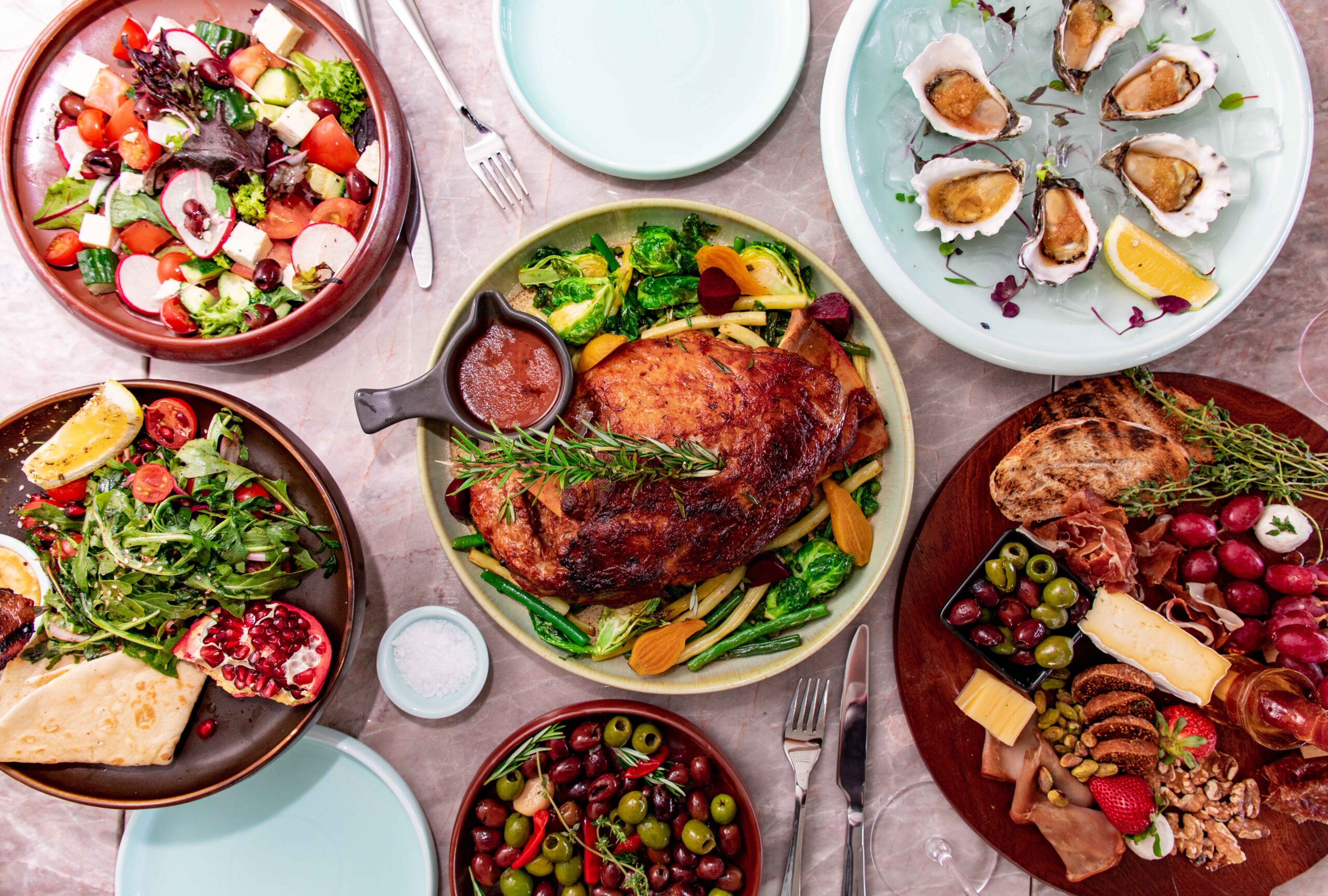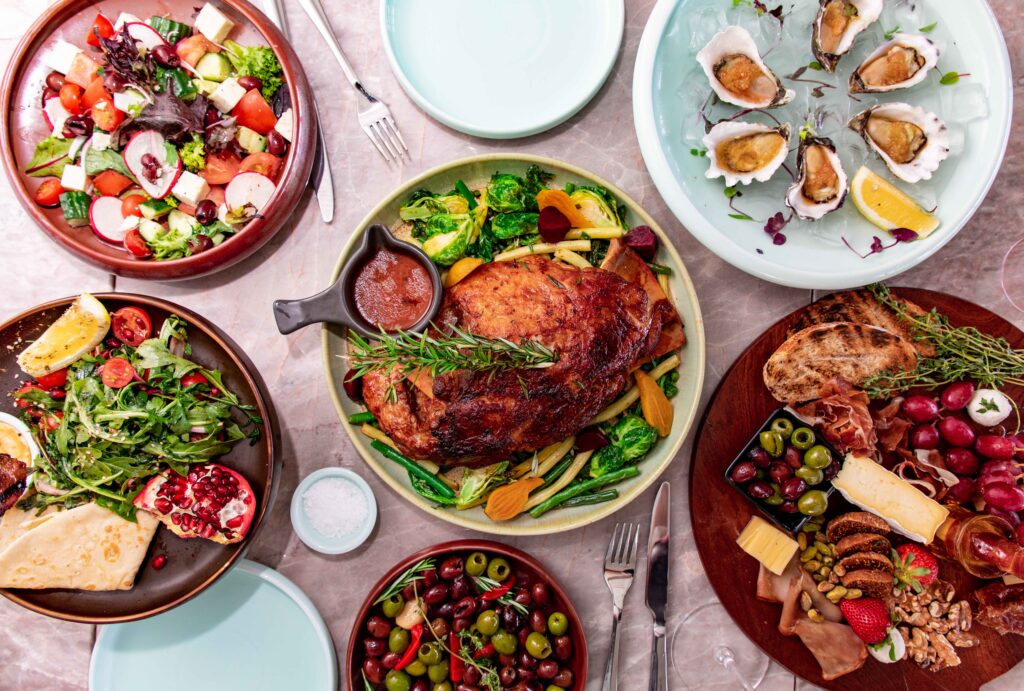If you’re pregnant or planning to become pregnant, it’s essential to prioritize your pregnancy nutrition. Eating a balanced diet that provides all the necessary nutrients can help support the growth and development of your baby while keeping you healthy and energized.
In this ultimate guide to pregnancy nutrition, we’ll cover everything you need to know about eating well during pregnancy, including essential nutrients, foods to avoid, meal planning tips, and meal ideas.
Essential Pregnancy Nutrition
During pregnancy, your body has increased nutrient needs to support the growth and development of your baby. Some of the most important nutrients for pregnancy include:
Folic Acid
Folic acid is crucial for the development of your baby’s neural tube, which eventually becomes the brain and spinal cord. It’s recommended that women who are pregnant or trying to become pregnant get 600-800 mcg of folic acid per day.
Foods rich in folic acid include leafy greens, citrus fruits, beans, and fortified cereals.
Iron
Iron is essential for the production of hemoglobin, a protein in red blood cells that carries oxygen throughout your body and to your baby. Pregnant women need about 27 mg of iron per day.
Foods rich in iron include red meat, poultry, fish, beans, and fortified cereals.
Calcium
Calcium is essential for the development of your baby’s bones and teeth. Pregnant women need about 1,000 mg of calcium per day.
Foods rich in calcium include dairy products, leafy greens, and fortified cereals.
Protein
Protein is crucial for the growth and development of your baby’s tissues. Pregnant women need about 75-100 g of protein per day.
Foods rich in protein include meat, poultry, fish, eggs, beans, and nuts.
Omega-3 Fatty Acids
Omega-3 fatty acids are important for the development of your baby’s brain and eyes. Pregnant women should aim to get at least 200 mg of omega-3s per day.
Foods rich in omega-3s include fatty fish (such as salmon), flaxseed, and walnuts.
Foods to Avoid During Pregnancy
While there are many nutritious foods that can benefit both you and your baby during pregnancy, there are also some foods that should be avoided due to the risk of foodborne illness or other health concerns. Some of these foods include:
- Raw or undercooked meat, poultry, and seafood
- Raw or undercooked eggs
- Unpasteurized dairy products
- Processed meats (such as deli meat)
- Fish with high mercury levels (such as swordfish, shark, and king mackerel)
Pregnancy Nutrition: Meal Planning Tips
Planning meals during pregnancy can be challenging, but it’s essential to ensure that you’re getting all the necessary nutrients. Here are some tips to help make meal planning easier:
1. Eat small, frequent meals
Eating small, frequent meals throughout the day can help keep your blood sugar levels stable and prevent nausea.
2. Focus on nutrient-dense foods
Choose foods that are high in essential nutrients, such as lean protein, fruits and vegetables, whole grains, and healthy fats.
3. Stay hydrated
Drinking plenty of water and other fluids can help prevent dehydration and constipation.
4. Prepare meals in advance
Preparing meals in advance can help ensure that you have healthy options on hand when you’re short on time.
5. Listen to your body
Pay attention to your hunger and fullness cues and eat when you’re hungry and stop when you’re full.
Pregnancy Nutrition: Meal Ideas for a Healthy Pregnancy
Coming up with meal ideas that are both nutritious and appealing during pregnancy can be a challenge. Here are some ideas to help get you started:
7-Day Vegetarian Meal Plan
| Day | Breakfast | Lunch | Dinner | Snack |
|---|---|---|---|---|
| Monday | Greek yogurt with fruit and granola | Chickpea salad with pita bread | Quinoa and black bean bowls | Carrots and hummus |
| Tuesday | Peanut butter and banana smoothie | Grilled vegetable sandwich | Lentil soup with whole grain bread | Apple slices with almond butter |
| Wednesday | Oatmeal with mixed berries and nuts | Avocado and tomato sandwich | Stuffed bell peppers with brown rice | Trail mix with nuts and dried fruit |
| Thursday | Veggie omelet with whole grain toast | Sweet potato and black bean burrito | Vegetarian chili with cornbread | Baby carrots with ranch dip |
| Friday | Whole grain pancakes with fruit and yogurt | Grilled portobello mushroom burger | Baked sweet potato with black bean and corn salsa | Greek yogurt with honey |
| Saturday | Scrambled eggs with whole grain toast | Greek salad with whole grain pita bread | Roasted vegetable lasagna | Edamame |
| Sunday | Breakfast burrito with scrambled eggs and veggies | Falafel wrap with tzatziki sauce | Ratatouille with quinoa | Orange slices |
7-Day Non-Vegetarian Meal Plan
| Day | Breakfast | Lunch | Dinner | Snack |
|---|---|---|---|---|
| Monday | Scrambled eggs with whole grain toast and bacon | Grilled chicken salad with mixed greens | Baked salmon with roasted vegetables and quinoa | Trail mix with nuts and dried fruit |
| Tuesday | Greek yogurt with fruit and granola | Grilled chicken sandwich with sweet potato fries | Beef stir-fry with brown rice | Apple slices with almond butter |
| Wednesday | Oatmeal with mixed berries and nuts | Turkey and cheese sandwich with vegetable soup | Grilled steak with sweet potato and green beans | Baby carrots and hummus |
| Thursday | Breakfast burrito with scrambled eggs and sausage | Grilled chicken and vegetable kebabs with whole grain pita bread | Shrimp and vegetable stir-fry with brown rice | Greek yogurt with honey |
| Friday | Whole grain pancakes with fruit and bacon | Tuna salad with whole grain crackers | Baked chicken breast with roasted vegetables and quinoa | Trail mix with nuts and dried fruit |
| Saturday | Scrambled eggs with whole grain toast and sausage | Cobb salad with grilled chicken | Beef and broccoli stir-fry with brown rice | Orange slices |
| Sunday | Breakfast sandwich with egg, cheese, and ham | Grilled chicken Caesar salad | Baked tilapia with roasted vegetables and quinoa | Edamame |
7-Day Vegan Meal Plan
| Day | Breakfast | Lunch | Dinner | Snack |
|---|---|---|---|---|
| Monday | Tofu scramble with vegetables and whole grain toast | Chickpea salad with whole grain pita bread | Vegan chili with cornbread | Carrots and hummus |
| Tuesday | Vegan protein smoothie with mixed berries and greens | Quinoa and vegetable stir-fry | Lentil soup with whole grain bread | Apple slices with almond butter |
| Wednesday | Overnight oats with chia seeds and fruit | Vegan wrap with avocado, tomato, and hummus | Vegan stuffed bell peppers with brown rice | Trail mix with nuts and dried fruit |
| Thursday | Vegan breakfast burrito with black beans and veggies | Sweet potato and black bean tacos | Vegan pad thai with tofu and vegetables | Baby carrots with ranch dip |
| Friday | Vegan banana pancakes with fruit and vegan yogurt | Vegan quinoa and black bean burgers | Vegan spaghetti with marinara sauce and vegetables | Greek yogurt with honey (for non-vegans) |
| Saturday | Vegan tofu and vegetable scramble with whole grain toast | Vegan lentil and vegetable soup | Vegan chickpea curry with brown rice | Trail mix with nuts and dried fruit |
| Sunday | Vegan protein smoothie with mixed berries and greens | Vegan vegetable and hummus sandwich | Vegan stuffed portobello mushrooms with quinoa | Apple slices with almond butter |
This 7-day vegan meal plan provides a variety of nutrient-dense, plant-based options for a healthy and balanced diet during pregnancy. It includes a mix of protein-rich foods such as tofu, lentils, chickpeas, and quinoa, as well as plenty of fruits and vegetables for essential vitamins and minerals. Additionally, snacks such as trail mix, carrot sticks with hummus, and apple slices with almond butter provide healthy options for between meals. By following this meal pregnancy nutrition plan, vegans can ensure that they are getting the necessary nutrients for a healthy pregnancy.
Note: These meal plans are for general informational purposes only and may not be suitable for everyone. Please consult a healthcare professional before making any significant changes to your diet.
Now that you have a better understanding of the essential nutrients for pregnancy, foods to avoid, meal planning tips, and meal ideas, you can feel confident in prioritizing your nutrition during this important time.
Remember, eating a balanced diet that provides all the necessary nutrients is crucial for supporting the growth and development of your baby while keeping you healthy and energized.
FAQs about Pregnancy Nutrition
- Q: How much weight should I gain during pregnancy? A: The amount of weight you should gain during pregnancy depends on your pre-pregnancy weight. Generally, women who are a healthy weight should gain 25-35 pounds, while women who are underweight or overweight may need to gain more or less.
- Q: Can I drink coffee during pregnancy? A: While some studies suggest that moderate caffeine intake (less than 200 mg per day) is safe during pregnancy, it’s best to talk to your doctor about your individual caffeine intake.
- Q: Should I take a prenatal vitamin during pregnancy? A: Yes, taking a prenatal vitamin can help ensure that you’re getting all the necessary nutrients for a healthy pregnancy. Talk to your doctor about which prenatal vitamin is best for you.
- Q: Are there any foods I should eat more of during pregnancy? A: Yes, it’s important to eat a variety of nutrient-dense foods during pregnancy, including lean protein, fruits and vegetables, whole grains, and healthy fats.
- Q: Can I still exercise during pregnancy? A: Yes, exercise is generally safe and beneficial during pregnancy. Talk to your doctor about what types of exercise are safe for you and how much exercise is appropriate.
- Q: What should I do if I’m experiencing morning sickness and can’t keep food down? A: If you’re experiencing morning sickness, try eating small, frequent meals throughout the day and avoiding greasy or spicy foods. If you’re unable to keep food down, talk to your doctor about possible treatments.
Conclusion
Pregnancy is a special time in your life, and prioritizing your nutrition can help support the growth and development of your baby while keeping you healthy and energized. By focusing on nutrient-dense foods, staying hydrated, and preparing meals in advance, you can ensure that you’re getting all the necessary nutrients for a healthy pregnancy.
Remember, if you have any questions or concerns about your pregnancy nutrition, be sure to talk to your doctor or a registered dietitian.
Thank you for reading this ultimate guide to pregnancy nutrition!
Read more Pregnancy related articles here.


